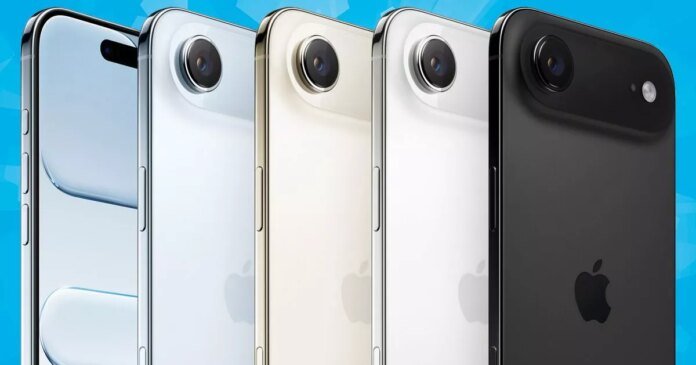Apple has officially unveiled its latest innovation, the iPhone Air, confirming previous rumors. The new device stands out as Apple’s thinnest iPhone yet, measuring just 5.6mm in thickness, surpassing even Samsung’s Galaxy S25 Edge in slimness. Holding the iPhone Air, one immediately notices its lightweight feel and remarkably slender design, making it easy to handle.
Constructed with durability in mind, the iPhone Air boasts a tough Titanium build and is shielded with Apple’s advanced Ceramic Shield 2 glass, ensuring resilience against impacts. Apple emphasizes the device’s robustness, surpassing bend strength standards set for previous iPhone models.
Under the hood, the iPhone Air is powered by the A19 Pro chip, offering high-performance capabilities akin to the top-tier iPhone 17 Pro models. This advanced processor ensures seamless operation for daily tasks and enhances gaming experiences. Additionally, the device features Apple’s N1 silicon for accelerated Wi-Fi 7 connectivity and improved Bluetooth 6 functionality.
Despite its cutting-edge technology, the iPhone Air opts for a single rear camera setup to maintain its slim profile, foregoing additional lenses for wide-angle or zoom capabilities. The camera system integrates a 48MP Fusion sensor, enabling various focal lengths, portrait mode, and impressive 4K video recording with Dolby Vision support.
One trade-off of the iPhone Air’s slim design is its reduced battery capacity compared to other iPhone models, potentially affecting overall battery life. To address this concern, Apple offers a portable power pack accessory for extended usage.
Priced at £999, the iPhone Air comes at a premium compared to the standard iPhone 17 model priced at £799. For tech enthusiasts seeking a sleek and powerful smartphone, the iPhone Air presents an enticing option despite its battery limitations.
